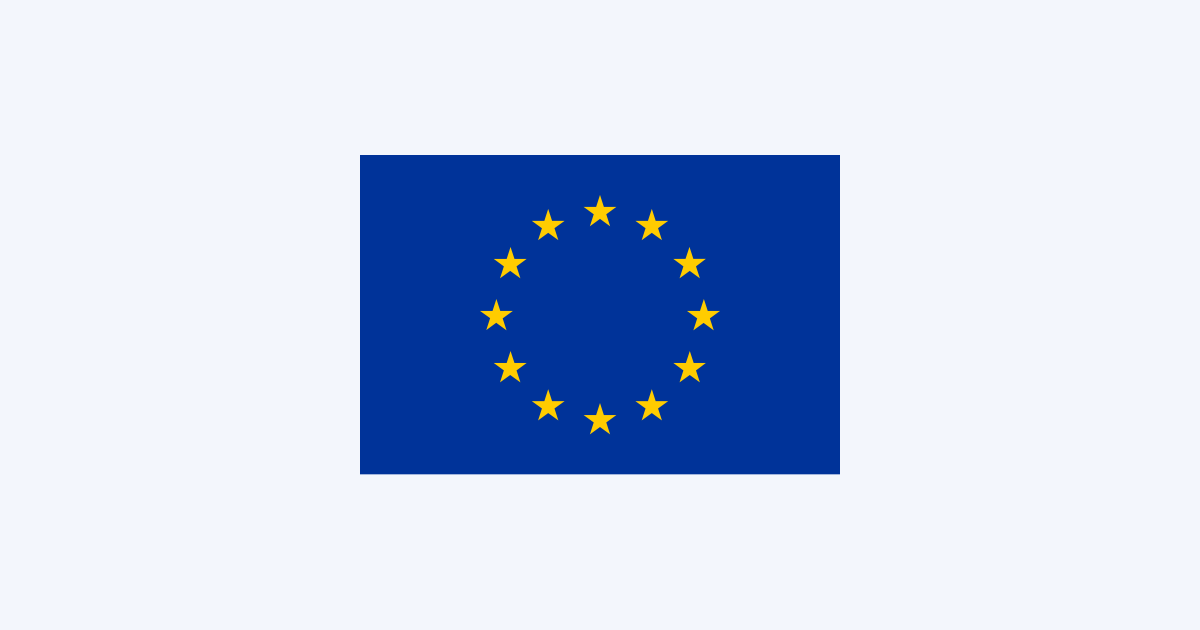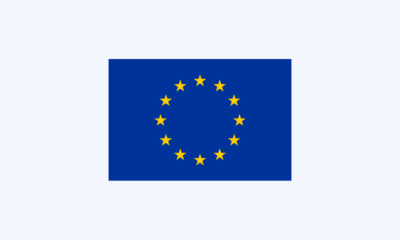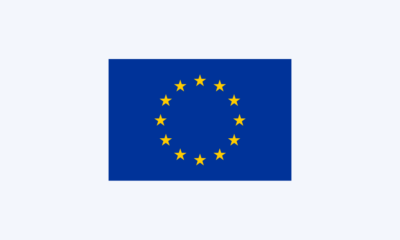Politics
President Costa to travel to Paris, Strasbourg, and Samarkand (31 March – 4 April)


© FRVS+MPCP 2022. The European Times® News is registered as an EU Trademark. All rights reserved. The European Times® and the logo of The European Times® are EU trademarks registered by FRVS+MPCP.
Members/Partners of

About Us
Popular Category
DISCLAIMER OPINIONS: The opinions of the authors or reproduced in the articles are the ones of those stating them and it is their own responsibility. Should you find any incorrections you can always contact the newsdesk to seek a correction or right of replay.
DISCLAIMER TRANSLATIONS: All articles in this site are published in English. The translated versions are done through an automated process known as neural translations. If in doubt, always refer to the original article. Thank you for understanding.
DISCLAIMER PHOTOS: We mostly used photos images that are readily available online, from free sources, or from the people promoting the news. If by any chance it happens that we have used one of your copyrighted photos, please do not hesitate to contact us and we will take it down without question. We do not make profits as this is a not for profit project to give voice to the voiceless while giving them a platform to be informed also of general news, and it is completely free.
Editor Picks
Politics
ECCC to finance EUR 390 million in cybersecurity projects under Digital Europe Programme for 2025-2027

Priorities for investment range from new technologies for cybersecurity, including on AI and post-quantum transition, to actions for improving EU cyber resilience and supporting SMEs.
The adoption of the DEP WP 2025-2027 constitutes a fundamental instrument for the implementation and advancement of the mission of the ECCC. The Centre aims to pool investment in cybersecurity research, technology, and industrial development, and ensure the efficient implementation of projects and initiatives in coordination with the Network of National Coordination Centres (NCCs).
During 2025-2027, the ECCC will continue to finance uptake and deployment actions in cybersecurity by the means of calls for proposals. The programme is structured as follows:
New technologies, AI and post-quantum transition
Dedicated actions will support entities in developing and deploying systems and tools for cybersecurity based on AI (including GenAI based technologies), reliable, secure and resilient AI models and algorithms or build the European testing infrastructure for the post quantum transition.
These enabling technologies should allow more effective creation and analysis of Cyber Threat Intelligence (CTI), automation of large-scale processes, as well as faster and scalable processing of CTI and identification of patterns that allow for rapid detection and decision making.
It will also include actions aimed at improving industrial and market readiness for the cybersecurity requirements for SMEs as specified in relevant EU cybersecurity legislation and to ensure the development and use of more secure hardware and software products.
Cyber Solidarity Act Implementation
The ECCC will contribute to the creation of the European Cybersecurity Alert System (ECAS) foreseen in the Cyber Solidarity Act, to build and enhance coordinated detection and common situational awareness capabilities at European level. In this regard, a pan-European network of national and cross-border Cyber Hubs will be established. The ECCC will support preparedness activities, part of the Cybersecurity Emergency Mechanism and the mutual assistance mechanisms foreseen in the Cyber Solidarity Act.
Additional actions improving EU cyber resilience
The ECCC will support the integration of relevant cybersecurity requirements deriving from several regulations and directives: NIS 2 directive, Cyber Resilience Act, CSA, DORA, GDPR, AI Act as required. It will contribute to the EC priorities, including to support the cybersecurity of hospitals and healthcare providers in alignment with the Action Plan. In addition, it is envisaged to provide support to improve the resilience and security of the infrastructure critical for global communications and solutions to cover the surveillance and protection of critical undersea infrastructure, such as submarine cables, as well as the detection of malicious activities around them.
ECCC Executive Director Luca Tagliaretti said: “The first ECCC Cybersecurity Work Programme is an important milestone in our establishment as key player in the EU cybersecurity landscape. The funding available will support innovation and deployment of technologies in Europe and contribute to the common goal of building a cyber resilient EU.”
Background
The ECCC implements the ‘Specific Objective 3: Cybersecurity and Trust’ from the DEP Regulation (EU) 2021/694. This is the first DEP Work Programme developed by ECCC following its financial autonomy reached in 2024. The Cybersecurity WP is meant to complement the main DEP WP and was written in close consultation with the ECCC Governing Board and the European Commission.
This document includes inputs from the ECCC strategic agenda and considers all the legal obligations stemming from the ECCC regulation, DEP regulation, Cyber Solidarity act, while supporting the implementation of other key legislative files including the Cyber Resilience Act, the Cybersecurity Act and NIS 2 Directive.
For more information: Digital Europe Cybersecurity Work Programme 2025-2027
Contact for media: communicationeccc [dot] europa [dot] eu (communication[at]eccc[dot]europa[dot]eu)
Politics
EIOPA proposes one-to-one capital requirements for EU insurers’ crypto asset holdings

The European Insurance and Occupational Pensions Authority (EIOPA) published today its technical advice to the European Commission, recommending that a one-to-one capital requirement be applied consistently to all crypto holdings of EU (re)insurers. EIOPA considers a 100% haircut in the standard formula prudent and appropriate for these assets in view of their inherent risks and high volatility.
Crypto assets are a relatively new assets class in finance and their regulatory treatment is still evolving. While the Capital Requirements Regulation (CRR) and the Markets in Crypto-Assets Regulation (MiCAR) include transitional prudential measures for crypto assets, the EU’s regulatory framework for (re)insurers so far has lacked specific provisions on crypto assets. As a result, (re)insurers currently classify their crypto assets without a consistent approach. This raises concerns about the risk sensitivity of these practices and the level of prudence associated with them.
EIOPA’s empirical analysis of historical crypto asset data suggests that current capital weight options – such as the 80% stress level applied to intangible assets – in fact underestimate the risks associated with crypto exposures.
Policy proposal
To promote a harmonized, prudent and proportionate treatment of crypto assets, EIOPA is proposing the introduction of a blanket 100% capital requirement across all crypto holdings, regardless of their balance sheet treatment or whether the exposure is direct or indirect.
The uniform treatment EIOPA proposes would adequately reflect the high risks associated with crypto investments without creating unnecessary complexity or imposing additional reporting requirements on (re)insurers at a time when their investments in crypto assets are still modest in size.
A possible broader adoption of crypto assets may, however, require a more differentiated approach down the line. The treatment of crypto holdings under Solvency II should therefore be reviewed in the future in light of market developments and regulatory approaches in other sectors.
Read the Technical Advice
Background and next steps
This publication comes in response to the European Commission’s Call for Advice and follows a public consultation on the topic with stakeholders. The Commission will now consider EIOPA’s technical advice in the review of level 2 provisions of Solvency II.
Source link
Politics
EIB to provide $110 million to finance energy efficiency and renewable energy investments
- $110 million loan to Banco del Estado de Chile to finance energy efficiency and renewable energy investments for small and medium businesses and industries among others, including the value chain companies for critical raw materials in the country.
Today the European Investment Bank (EIB) and Banco del Estado de Chile signed in Santiago de Chile a $110 million loan to finance energy efficiency and renewable energy investments for small and medium businesses and industries among others, including the value chain companies for critical raw materials in the country. The operation is in line with the EU Global Gateway Investment Agenda in Chile and fosters partnerships to develop sustainable local value chains in the critical raw materials segment.
The loan was signed by Daniel Hojman, President of Banco del Estado de Chile, and by Thouraya Triki, EIB Director of the International Partners Department, in the presence of the European Commissioner for International Partnership Jozef Sikela.
The project, 100% climate action, supports Chile’s transition to a decarbonised, environmentally friendly, and inclusive economy, reinforcing the country’s efforts to enhance renewable energy and energy efficiency measures. Mining companies or companies providing services to the critical raw materials sector, and implementing energy efficiency and renewable energy sub-projects, can also be targeted as final beneficiaries, thus supporting the decarbonisation of the critical raw materials supply chain, which is needed to ensure a clean energy transition in the country.
“This $110 million financing agreement between the European Investment Bank and Banco del Estado de Chile is a relevant contribution towards a cleaner and more efficient energy future. We are investing in renewable energy and energy efficiency, especially for small and medium businesses, thereby strengthening the decarbonisation of the Chilean economy. This initiative reflects our shared commitment to climate action. Through the Global Gateway Investment Agenda, Chile and the European Union are strengthening our collaboration, ensuring that economic growth and environmental protection go hand in hand,” said Jozef Sikela, European Commissioner for International Partnership.
“This agreement between BancoEstado and the European Investment Bank strengthens the cooperation between our two financial institutions, with the aim of accelerating the adoption of green energy. This complements our previous partnership, which sought to improve the financial access conditions for housing with enhanced energy efficiency standards. Sustainability is an integral part of our identity as a public bank, and green financing is one of our strategic pillars, in line with supporting Chile’s transition towards an economy committed to climate action and environmental conservation,” said Daniel Hojman, President of Banco del Estado de Chile.
“The $110 million EIB financing in energy efficiency and renewable energy generation supports Chile’s green transition and the EU’s Global Gateway Investment Agenda in Chile while strengthening energy security in the years ahead. This operation contributes significantly to decarbonise the energy supply in the country and unlocks energy efficiency potential in small and medium businesses and industry, including in the critical raw materials sector. This cooperation with Banco del Estado de Chile builds on the EIB’s global climate engagement and our support for climate action in Chile over the last three decades,” said Ioannis Tsakiris, Vice-President of the European Investment Bank.
The operation is part of the European Union’s Global Gateway Investment Agenda (GGIA) supporting projects that improve global and regional connectivity in the digital, climate, transport, health, energy and education sectors. The Global Gateway is the European Union’s contribution to narrowing the global investment gap worldwide. Between 2021 and 2027, the European Union expects to mobilise up to €300 billion of investments for sustainable and high-quality projects, taking into account the needs of partner countries and ensuring lasting benefits for local communities.
Background information
About EIB Global
The European Investment Bank (ElB) is the long-term lending institution of the European Union, owned by the Member States. It finances investments that pursue EU policy objectives.
EIB Global is the EIB Group’s specialised arm devoted to increasing the impact of international partnerships and development finance, and a key partner of Global Gateway. It aims to support €100 billion of investment by the end of 2027 – around one-third of the overall target of this EU initiative. Within Team Europe, EIB Global fosters strong, focused partnerships alongside fellow development finance institutions and civil society. EIB Global brings the EIB Group closer to people, companies and institutions through its offices across the world. Photos of EIB headquarters for media use are available here.
High-quality, up-to-date photos of our headquarters for media use are available here.
About EIB Global in Chile
The EIB is the largest multilateral public bank in the world. In 2024 it financed around €8.4 billion in investments outside the European Union via EIB Global, the arm of the EIB created in 2022 for activities beyond Europe. Since the EIB started working in Chile in 1994, it has provided over €942 million to finance investments on favourable conditions — in terms of both maturity and interest rates — with the aim of improving Chileans’ quality of life.
About EIB Global in Latin America
EIB Global has been providing economic support for projects in Latin America since 2022, facilitating long-term investment with favourable conditions and offering the technical support needed to ensure that these projects deliver positive social, economic and environmental results. Since the EIB began operating in Latin America in 1993, it has provided total financing of around €14.9 billion to support more than 170 projects in 15 countries in the region.
About the Global Gateway Investment Agenda
EIB Global is a key partner in the implementation of the European Union’s Global Gateway Investment Agenda (GGIA), supporting sound projects that improve global and regional connectivity in the digital, climate, transport, health, energy and education sectors. Investing in connectivity is at the very heart of what EIB Global does, building on the Bank’s 65 years of experience in this domain. Alongside our partners, fellow EU institutions and Member States, we aim to support investment of €100 billion (around one-third of the overall budget of the initiative) by the end of 2027, including in Chile and Latin America.
-

 Politics6 days ago
Politics6 days agoCouncil and Parliament strike provisional agreement on new rules for driving licences
-

 EU & the World6 days ago
EU & the World6 days agoVanessa Trump & Donald Trump Jr.’s Kids: Meet Their Children
-

 EU & the World6 days ago
EU & the World6 days agoMia Love’s Family: Learn About Her Husband & Their Children
-

 EU & the World6 days ago
EU & the World6 days agoElin Nordegren’s Net Worth: How Much Money Tiger Woods’ Ex-Wife Has
-

 Politics6 days ago
Politics6 days agoCouncil adopts financial benchmarks regulation to ease burden on SMEs
-

 Politics6 days ago
Politics6 days agoIsrael: remarks by High Representative/Vice-President Kaja Kallas at the joint press conference with Minister for Foreign Affairs Gideon Sa’ar
-

 EU & the World4 days ago
EU & the World4 days agoCould Litia Garr Be the Next Bachelorette? Update After Grant Ellis Breakup
-

 EU & the World7 days ago
EU & the World7 days agoJoe Gatto’s Kids: Does He and His Wife Bessy Have Children?








